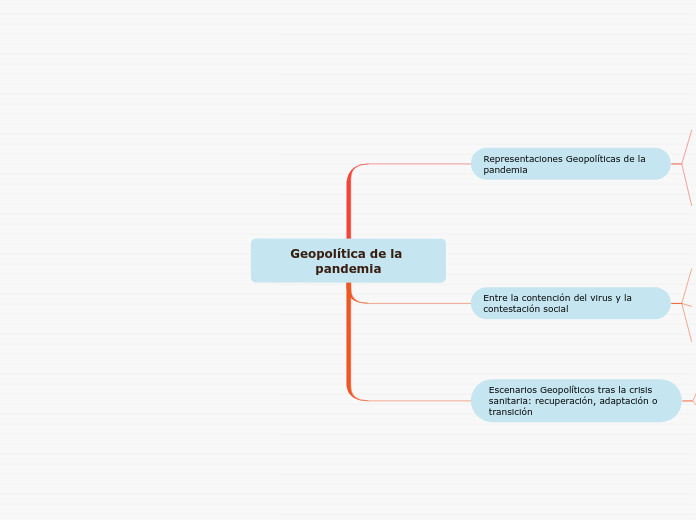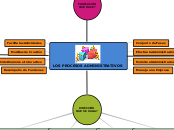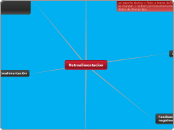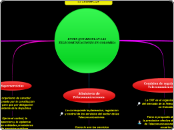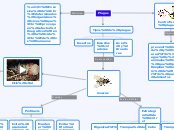Geopolítica de la pandemia
To name your story, you have to think about the overall message and what you want your audience to understand from the story. Also, make it relevant and easy to remember.
Escenarios Geopolíticos tras la crisis sanitaria: recuperación, adaptación o transición
The ending of a story is essential. We all know that if the ending is weak, what happened before loses its importance. So make it unpredictable, but fair. A resolved ending answers all the questions and ties up any loose threads from the plot.
Realidades Nacionales
This is the closure section of the story.
See examples of possible outcomes below:
- all problems have been solved
- it's clear how each one of your characters ends up
- your main character is transformed by the challenge
Articulación de peleas populares del Sur mundial entre sí con las iniciativas sociales del Norte.
Polémicas sobre el eurocentrismo.
Try answering these questions to come up with a closure:
- Have all the problems been solved?
- Is there a clear picture of what happens with each character in the story?
- Has the challenge transformed your main character?
- How do the characters feel in the end?
Descolonización de la lógica
This is the moment when the main character surpasses the last obstacle and finally faces their greatest challenge.
The climax usually follows one of these patterns:
- realization
- resolution
- choice
Type in your answer.
Centralidad al Estado y contribuciones con el fin de impulsar un enorme pacto ecosocial y económico.
Entre la contención del virus y la contestación social
The middle of the story is where you add layers of complications that will lead to the end. Reveal more about the character's journey. Did their personality go through changes? How did they overcome the challenges? And as you build up the story’s central conflict, make it more personal to that character. Also, from the middle act, you have to lead into the final act.
Narrativa bélica
There wouldn't be any tension and excitement in your story if there weren't any obstacles in your character's way.
Horizontes de transformación social
A story is nothing more than a character overcoming a series of difficulties to reach the desired goal. Obstacles usually create suspense and conflict. In overcoming obstacles, there is growth: weak becomes strong; hatred turns into love; sadness into happiness; wrong into right; lies into truth; or evil becomes good.
See a few examples below:
- stopping a meteor
- finding a killer
- finding love
Practicas de resistencia.
Articulaciones políticas.
Estados de emergencia de suspensión
Your character(s) need(s) motivation in order to solve the challenge(s).
Culturas políticas
Why does your character need to confront this challenge? What does he/she expect to accomplish by solving it?
See a few examples:
- will marry in 3 days
- can fix the mistakes of the past
Basadas en el activismo.
Sin arraigo Internacionalista.
Politicas de custodia social y sanitaria
Each story has a main character and that character usually needs to solve a problem or challenge. The character's challenge is the one that creates tension throughout the story.
Trabajadores han tenido que seguir trabajando, sea por cuestiones de sobrevivencia o porque sus tareas entran en aquellos que son considerados "servicios esenciales"
In most stories, there are 3 challenges. The number 3 is a mystical number symbolizing completeness. Try to come up with interesting challenges with which your character needs to struggle.
See a few examples below:
- turns into a werewolf at night
- is sent back in time
Representaciones Geopolíticas de la pandemia
In the beginning of the story (or the exposition), you will need to introduce the setting and characters. You might also want to introduce the main conflict. This part of the story is important because it gives the reader necessary background information and maybe even a first insight into a character’s personality.
Reorganización regional
The setting (time & place) of a story can change throughout the plot.
Deterioro de condiciones de vida.
Sensory details include sight, sound, touch, smell, and taste. These details are important because they create depth in your setting.
See a few examples below:
- the smell of fresh bread
- the scent of freshly cut grass
- rain falling onto the windshield etc.
Restricciones de libertad.
The weather is an important element in your story because it can highly influence the ambiance and the mood of the characters.
El más grande control social.
The time of the story can also change. It can describe the event of a single day or can include an entire year's plot. Anyway, don't forget to mention it.
Egoísmo y el utilitarismo.
Your story can take place wherever your imagination will take you to.
For example: in an elevator, in an enchanted forest, etc. Don't forget to give details of the environment each time the setting changes, otherwise, the story can be confusing. Also, mention the seasons as each of them has unique weather and events.
Caos global
Characters are essential to a good story. Usually, the protagonist(s) is/are the most affected by the plot. Introduce a character by focusing on their actions, interests, and occupation, as the physical appearance doesn't make a difference in most cases.
Debates intelectuales y políticos
Type in the name of your character.
Rearticulación de iniciativas locales y sujetos colectivos.
Add other qualities/attributes of the character.
Los aprendizajes positivos que la vivencia de la pandemia podría producir.
What is your character's main goal?
fight Evilfind lovedefeat his/her enemyrule the worldmake friendstime travelmake an awesome discoveryOther
La enésima muerte del capitalismo.
Which traits best describe the character's personality? Choose more if necessary:
introvertedloyalkindindependentquick-thinkingadventuresomeidealisticsweet-naturedcalmrisk-takercreativewittystrictfussyweirdclumsyharshaggressivecarelessclingingcowardlycrueldeceitfulimpulsiveOther
Muestras renovadas de solidaridad.
Choose the type of your chacter:
Protagonist (main character)Antagonist (main character's opponent)Flat (stereotypical character)Round (his/ her personality develops throughout the story)Static (doesn't evolve as a person throughout the story)Dynamic (dramatical change in personality)Confidant (the main character trusts him/ her)Foil (contrasting character who enhances the personality of another character)Other
